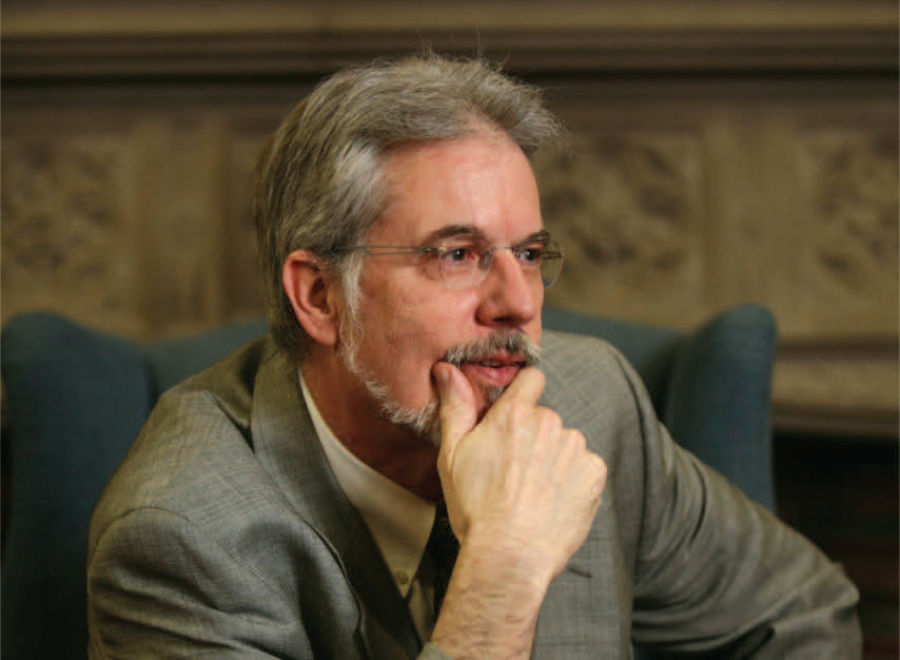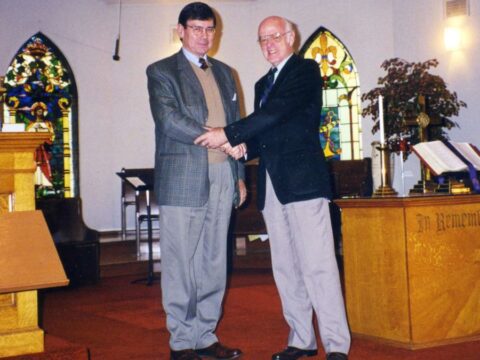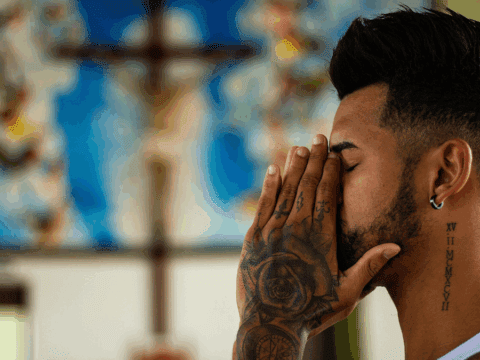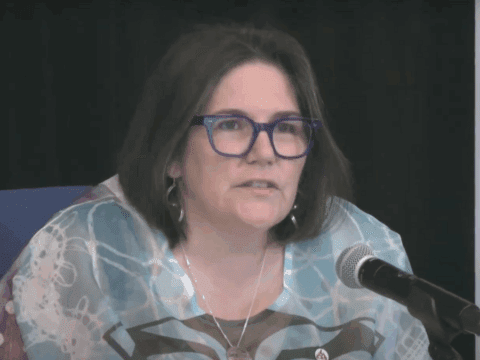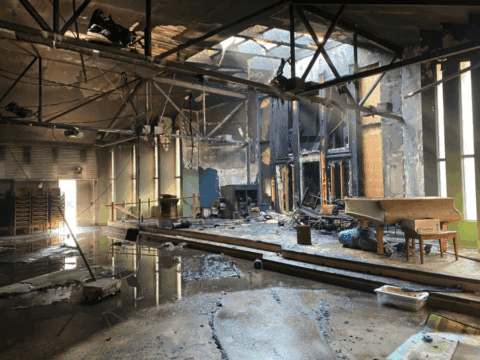Mark Toulouse is the first American to be appointed principal of the United Church’s Emmanuel College in Toronto. He talks with David Wilson about the surprising similarities between theological education here and in the United States.
DAVID WILSON: Did you ever imagine you’d become principal of a Canadian theological school?
You may unsubscribe from any of our newsletters at any time.
MARK TOULOUSE: No, not really. I had returned full-time to the classroom for six years after spending 11 years as dean (and teaching half-time) at Brite Divinity School [in Fort Worth, Texas]. I had imagined the possibility of returning to some kind of administration, but I wasn’t actively seeking anything when I got a phone call asking me to look at this position. I decided to come up and explore it, and the end result was that I was offered the job.
DW: What does it say about the United Church’s largest theological school that it looked to the southern United States for leadership?
MT: I don’t think it was that Emmanuel College was looking to the southern U.S. for leadership as much as it was Emmanuel looking for a particular kind of leadership. When administrative positions come open here, the university does a review of the responsibilities associated with the position. Out of that review, the search committee did its work in shaping the position description and identifying the kind of strengths they were looking for in a leader.
DW: Eyebrows were raised with it was announced that someone who was not only a non-United Church person but also a non-Canadian would be heading up Emmanuel. How significant is this?
MT: It’s important to recognize that there has been a long history of conversation and cross-border association between theological schools in Canada and the U.S. For example, almost all of Emmanuel’s principals have been engaged in the Association of Theological Schools, which sets accreditation standards for all of North America. So I don’t think it’s a matter of whether you do theological education one way in the U.S. and a different way in Canada.
Whenever anybody comes into a context that they’re not inherently part of, they’re going to have a different understanding of particular issues or bring a different light to things. I’m sure there are things I’ll be able to learn from this context and things that I’ll be able to bring to this context.
DW: What’s one big difference you’ve noticed so far?
MT: The importance of worship life in the college. There’s a strong denominational connection in Emmanuel’s life that’s quite different from mainline schools in the U.S. Because the vast majority of Master of Divinity students at Emmanuel are from The United Church of Canada, they have a ready connection to how they think about worship. I think the commitment to the church has brought a commitment to worship that makes it the centre of community life here. Building community in the U.S. is a much greater challenge because the denominational connection isn’t so strong and because so many schools are becoming commuter-oriented.
DW: Do you find students here any more or less open-minded than they are in the United States?
MT: There’s no easy description of an entering theological student. In any student body you have some students who are like sponges and want to soak up everything you have to offer. You have others who are somewhat resistant and intimidated by change.
But I think most students, whether here or in Texas, have open minds in the sense that they really don’t have a full understanding of what theological education involves, but they are dedicated to finding out. It doesn’t matter what their denominational traditions or theological persuasions may be.
DW: These are tough times for churches everywhere. Yet I sense a remarkable optimism in students in United Church colleges as they prepare for ministry. Is this something unique to the United Church, or are students everywhere just as optimistic?
MT: Yes — until they start to pay off their student loans! It has to do with call and mission. Most students who go to the trouble of enrolling in a theological school make a big commitment to it. In the United Church, you’re talking about three full years of study and a year of internship followed by settlement. With that strong commitment comes the excitement of imagining yourself fulfilling what God has called you to do.
But I think students are also realistic. By the time they have reached the middle or upper years of their education, they know that ministry in today’s culture is an uphill struggle.
DW: Are theological schools adequately preparing students for that struggle?
MT: The challenge any theological school faces is how to engage programs with the signs of the times. It’s an ongoing task you never complete. Most faculties continually retool their courses to bring a closer connection to what the world is really like. But like all institutional cultures, change in theological schools takes time. Emmanuel has recently been through an exercise in curriculum reform that attempts to take context seriously. Are we doing it well enough? I think we can always do better.
DW: What are your top priorities for Emmanuel?
MT: A couple of things are right in front of us. One is an accreditation renewal visit in spring 2011. Leading up to that, we will be organizing a complete self-study, looking at all phases of our work. Alongside that, we’re putting together a task force including people from outside the school to help us think about our mission and to work on goals and objectives for the next five years. Pretty much every aspect of our work will be on the table.
DW: From what you’ve seen so far, what is your take on the state of theological education in the United Church?
MT: Membership in the church is dropping. When you have fewer people in the churches, you have fewer people going into theological education for ministry. A large number of United Church ministers are nearing retirement. Will we have enough in the pipeline behind them to fill the vacancies? The move in the last couple of decades toward second-career ministers has helped to keep up with needs. But those second-career ministers are now nearing retirement, and if they aren’t replaced by the same number of students coming in, then we could be in trouble.
The encouraging sign is that there seems to be an increasing number of younger students. If we’re able to increase that trend, it could help us a lot. Recruitment is a much more prominent feature of American theological schools. We really need to increase the visibility of schools like Emmanuel, to help younger people imagine ministry as a career and vocation, to get some attention and create some excitement.
DW: Any surprises in your first months in Canada?
MT: This may seem difficult for you to believe, but the winter proved not to be as harsh as I had imagined. I am thrilled by the international flavour of Toronto, its people, culture and cuisine. On the disappointing side, I can’t download new books onto my wireless digital book reader. Cellphones operate differently, and service is more expensive. On the whole, though, I’ve thoroughly enjoyed my time in Toronto.
This is a beautiful country.
***
This story first appeared in The United Church Observer’s June 2009 issue with the title “‘We really need to help younger people imagine ministry as a career.’”

